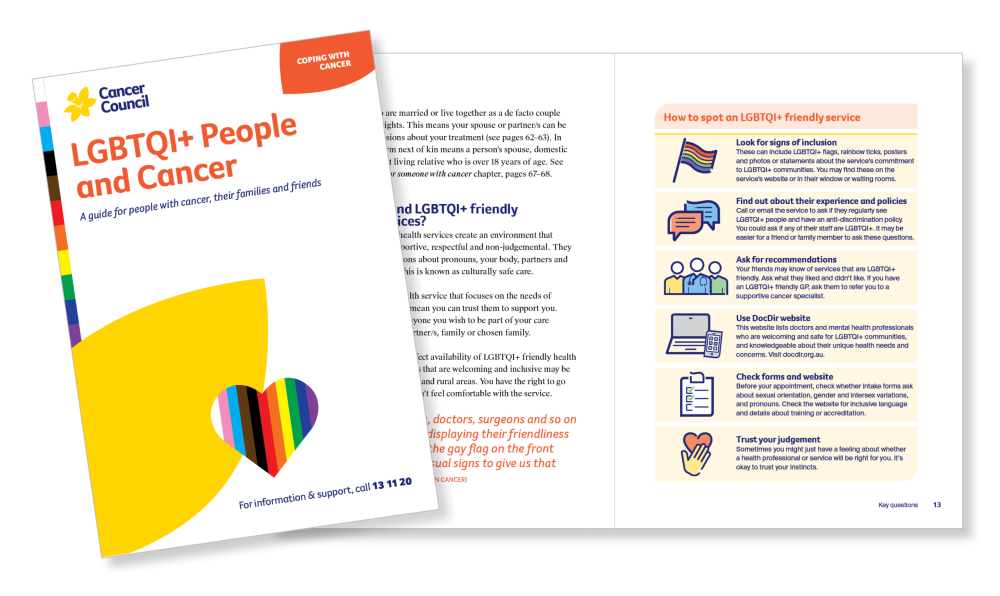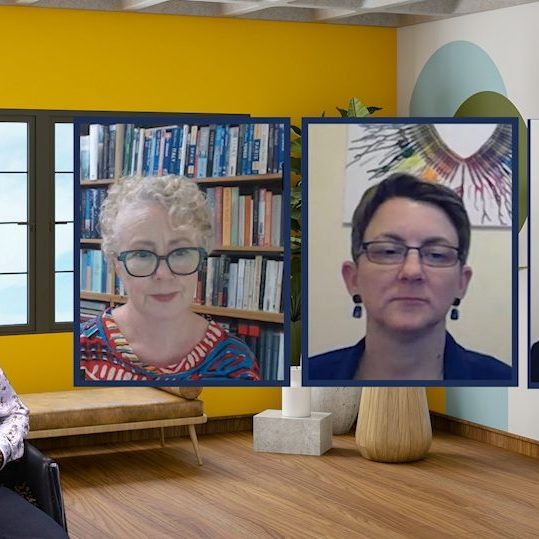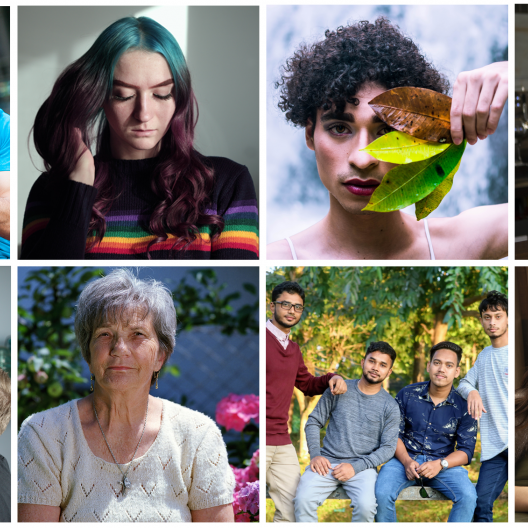
Cancer Council delivers first-of-its-kind publication for people affected by cancer in Australia’s LGBTQI+ communities.
This week, Cancer Council NSW, as part of the University of Western Sydney’s Out with Cancer research project in collaboration with Prof Jane Ussher, have released LGBTQI+ People and Cancer: A guide for people with cancer, their families and friends, a landmark publication and the first of its kind in Australia.
“We have developed this 80-page booklet to provide a guide to cancer and its treatment specifically for LGBTQI+ people – lesbian, gay, bisexual, transgender, queer, and other diverse sexualities and genders, as well as people with intersex variations,” explains Deputy Chair of Cancer Council’s National Cancer Information Subcommittee Jenni Bruce. “We have worked closely with Prof Jane Ussher and her team at Western Sydney University, LGBTQI+ organisations, health professionals and LGBTQI+ people affected by cancer to deliver a resource addressing the particular information needs of these communities.”
The Out with Cancer research project shows that LGBTQI+ people experience higher levels of distress during cancer treatment and have poorer cancer outcomes. Prof Jane Ussher explains how the study highlights why this new booklet is needed, “We found that rates of distress were 3-6 times higher in LGBTQI+ communities than the general cancer population. Anxiety about disclosure of LGBTQI status was high, associated with fear of hostility and discrimination.” The study found that distress was higher in adolescents and young adults, trans and non-binary people, those with intersex variations, and people living in rural and regional areas.
“You can’t understate the power of displaying your organisation or practice’s support of diversity with posters, flags and availability of specific LGBTQI+ resources,” Prof Ussher concludes.
Listen to our interview with Prof Jane Ussher and Julie McCrossin.
In 2013, renowned broadcaster and LGBTQI+ rights advocate Julie McCrossin was diagnosed with stage four oropharyngeal cancer caused by the human papillomavirus, or HPV. Ms McCrossin explains how vital this resource will be for people affected by cancer in the LGBTQI+ communities and their families: “Many of us have experienced discrimination and rejection before cancer. The last thing we want to deal with when facing a potentially life-threatening diagnosis is an ill-informed response from the health professionals we rely on for treatment and care.
“As a lesbian attending appointments and treatment with my long-term partner Melissa, it would be marvellous to see LGBTQI+ on a Cancer Council booklet offering information and support directly relevant to our lives.” She explains that when she was a patient herself, she associated Cancer Council booklets with useful information and a feeling of hope and recovery: “A cancer centre displaying this booklet sends an instantly recognisable message that the team is truly welcoming LGBTQI+ patients. This will bring relief and a sense of support at a time when you really need it.” Ms McCrossin concludes.
It has been nearly ten years since Ms McCrossin’s initial diagnosis and successful treatment in 2013.
The information booklet is also available online at cancercouncil.com.au/lgbtqi
If you or anyone you know, has any questions about cancer, call Cancer Council on 13 11 20


